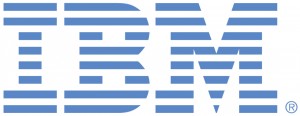The way government uses technology changes based on shifting agency and citizen needs and new computing capabilities. Cognitive computing is not just a change; it is the dawn of the next era of computing. It capitalizes on the latest technological advancements, a computer system that learns from its environment, while providing solutions to some of the biggest challenges that government faces by providing insights not available until now. A recent IBM executive report by based on a survey of 100 government executives across the globe covers the forces that have led to the advent of cognitive computing and how it can change government.
This executive report describes cognitive computing as “systems that learn at scale, reason with purpose, and interact with humans naturally. Rather than being explicitly programmed, they learn and reason from their interactions with us and from their experiences with their environment.” This innovative system provides the opportunity for a variety of new capabilities, such as:
- Learning and building knowledge from various structured and unstructured sources of information;
- Understanding natural language and interacting more naturally with humans;
- Capturing the expertise of top performers and accelerating the development of expertise in others;
- Enhancing the cognitive processes of professionals to help improve decision-making; and
- Elevating the quality and consistency of decision-making across an organization.
The growth of cognitive computing correlates well to increased disruption for governments. IBM’s report identified three main disruptive forces that will influence how agencies fulfill their missions. First is increased demand and expectations; second is increased complexity; and third force is fiscal and resource constraints. Each of these produces significant obstacles for government missions and operations.
Several factors affect the increasing demand and expectations. The United Nations has predicted that the world’s population will grow by more than 32% by 2050. As physical numbers are growing, the citizen expectations of government services are also changing. Of the government leaders interviewed for this study, 59% said they believe citizens will expect more personalized experiences in the next three years. However, 63% of government organizations surveyed are not prepared to face the challenge.
Increased operational and mission complexity is happening both in physical and virtual spheres. Geopolitical instability, such as a rise in terror attacks, international conflicts, global warming, and massive migration, increases complexity and heightens risks. Outside of the physical world, the dramatic increase in data from new technology provides new opportunities for government services but also new challenges in deriving and implementing useful insights. In addition, the greater reliance on technology makes government operations vulnerable to cyberattacks.
These forces are exacerbated by the fiscal and resource constraints that government organizations face. Many governments are predicting budget deficits, forcing organizations to do more with less money. But the deficits aren’t limited to just money. Governments are also facing a dearth of skilled human capital. A recent IBM study found that skilled workers were one of the top external factors government leaders thought would affect their organizations. At the same time, governments are having trouble find and retaining the skilled workers they need.
While these disruptive forces will cause changes, governments can use cognitive computing to focus their new strategies. Each disruptive force aligns with a capability of cognitive systems. In the face of increased demand and expectations, organizations can promote greater engagement with citizen audiences. By improving communications and the citizen experience, government organizations will improve satisfaction and approval of the government as well as help the economic climate. To combat growing complexity, governments can develop new tools for discovery.
In the future, citizens who hope to develop a business can consult a cognitive assistant on specific advice for setting up a business in a city. The assistant will be able to take the pertinent information and guide the citizen through the necessary processes. Employee assistance programs will be able to use cognitive discovery to determine root causes of unemployment instead of just treating symptoms, making social services more effective and producing a greater net social benefit. In addition, the systems will be able to process information from multiple data streams and produce insights and patterns in near-real time. The speed and flexibility of such capabilities will be invaluable in government public safety efforts as well as other fields.
For more information on the opportunities that cognitive computing provides and guidance on how agencies should implement these systems, read IBM’s full executive report here.
Content provided by IBM and GovLoop:






Leave a Reply
You must be logged in to post a comment.